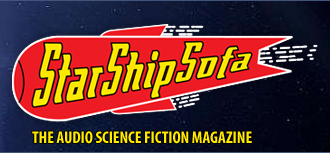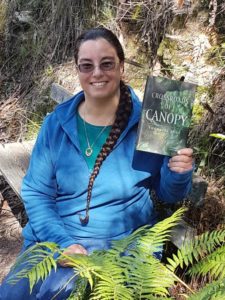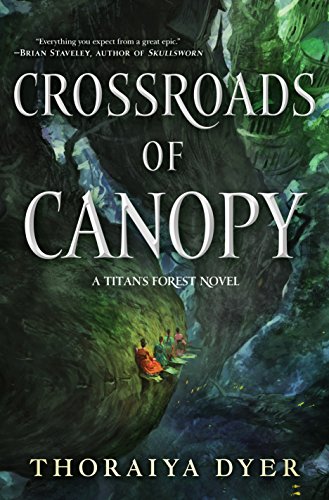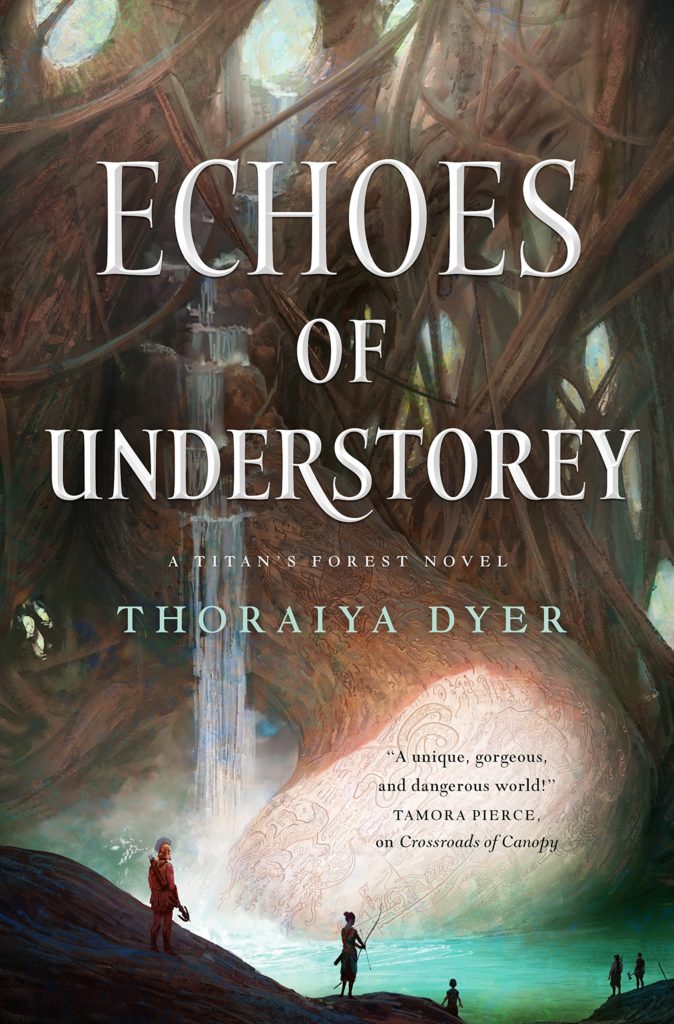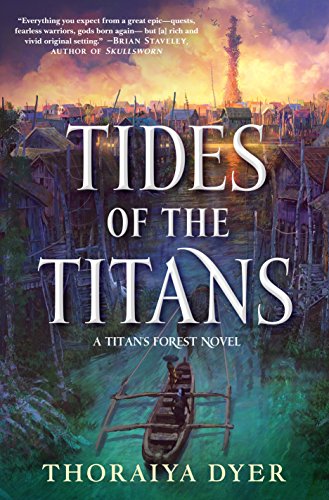Podcast: Play in new window | Download | Embed
Subscribe: Apple Podcasts | Spotify | Amazon Music | Email | TuneIn | RSS | More
An hour-long conversation with Jeremy Szal, author of Stormblood, Book 1 in the dark space-opera Common trilogy (Gollancz), author of more than 40 science fiction short stories, and former editor of the Hugo-winning online audio magazine Starship Sofa.
Website
www.jeremyszal.com
Twitter
@JeremySzal
Facebook
@ Jeremy.J.Szal
The Introduction
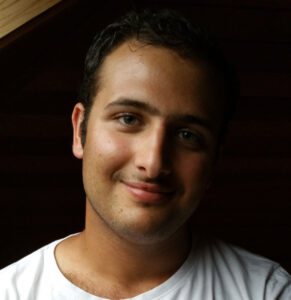
Jeremy Szal was born in 1995 and, he says, “was raised by wild dingoes.” He spent his childhood exploring beaches, bookstores, “and the limits of people’s patience.”
He’s the author of more than 40 science fiction short stories, and his debut novel, Stormblood, a dark space opera, came out from Gollancz in June 2020 and is the first of a trilogy. He was the editor of the Hugo-winning Starship Sofa until 2020, and has a B.A. in film studies and creative writing from the University of New South Wales. He carves out a living in Sydney, Australia, with his family.
He loves watching weird movies, collecting boutique gins, exploring cities, cold weather, and dark humor.
The (Lightly Edited) Transcript
Welcome to The Worldshapers, Jeremy.
Thank you very much, Edward. Lovely to be here
Well, thanks so much for being on. I haven’t been able to finish your book, but I’ve delved into it enough to know that it looks really cool. So, I’m looking forward to talking with you about it. But before we do that, we will do…well, first of all, we should point out that we are talking across a vast expanse of the planet since I’m in Saskatchewan and you’re in… Sydney, is it?
Sydney, Australia, yeah. I think fourteen hours difference.
Fourteen hours.
Yeah.
So, he’s actually…you’re actually in the future, from my point of view.
I am in the future. It’s not too bad here, you know. Another day has dawned, we haven’t, you know, destroyed ourselves. Aliens haven’t invaded. Not yet. Yeah.
Well, that’s good to know. I can get up in the morning without fear then. So let’s start, as I always do with my guests, by taking you back into the…I’m going to put reverb on this someday…the mists of time, and find out how you, well, first of all, where you grew up, and how you got interested in science fiction, and how you got interested in writing. So, how did that all work for you?
Yeah, I grew up here in Sydney, Australia. I was always a reader, and I never really thought of genre in any particular fashion. I just read the books I liked reading. But when I was ten years old, we moved to Austria for a couple of years, basically to a small mountain village, because my dad’s from Poland and my uncle and grandfather had died in a very short period of time and he needed to go out and sort some things there.
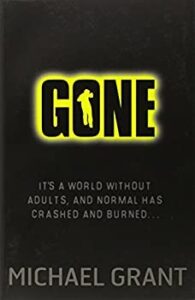
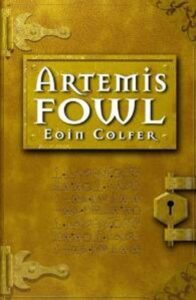
Anyway, so I’m living there in tall mountain regions of Austria. And for some reason, whatever reason, the local school library has a small English section. And, you know, obviously, they all speak German there. Alas, the world does not speak the language I speak wherever I go. You do have to learn the local tongue. And so, I hadn’t spoken German yet, and so I was still picking through what they had for me to read. And, you know, I quickly devoured a lot. But then, you know, my mother is an English teacher, and she was very, very determined to get me books. And so, whenever we would go to London, we’d always stop at the bookstore and I’d always, you know, devour whatever they had there. Like, I picked up whatever I still thought was interesting, you know, there was no, as I said, it was no genre, I didn’t think of fiction as science fiction or not. I just picked up whatever I wanted to pick up. And one of those things happened to be the Artemis Fowl series. And then I picked up the GONE series by Michael Grant. And then I picked up a few books by Stephen King. And again, I didn’t think of them…I just bought whatever I liked reading. And the covers appealed to me. I liked the action, I liked the adventure, I liked the weirdness of it.
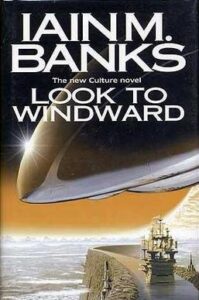
And then, I remember distinctly seeing a cover from Iain M. Banks when I walked into a Waterstones when I was thirteen, fourteen, and something about it just appealed to me, you know, the spaceship, the planet, the weirdness of it, the technology. And I couldn’t put my finger on it. Like, I couldn’t think, “OK, why do I like this?” I just did. You know, obviously I’d seen Star Wars, I’d seen my own fair share of science fiction, I was an avid videogamer, and so I had a little science fiction, but I never really thought of it as sci-fi. But then, when I came back to Australia and when I, you know, finished, started going into high school, I took up a few creative writing courses, and I found that I quite liked it.
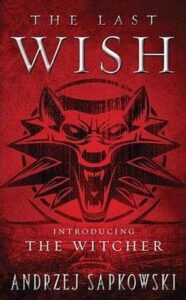
And then, I started reading the whole Song of Ice and Fire series, when I was way, way too young to read those books. And then I saw the first season of Game of Thrones, again when I was way, way, way too young for it–I don’t even think I legally could have seen it at the time–and something about the whole idea of fantasy just appealed to me, you know, the idea of a magical realm with its dragons and creatures and these different cultures and different landscapes and all this weird stuff going on like that, this really appealed to me. And so, when I started acknowledging, you know, the idea of science fiction through video games like Halo and Mass Effect, it just really grabbed me. And so, when I did finish high school, I just started reading, going to the bookstores, and going to a science fiction bookstore, science fiction section of the bookstore, deliberately, like, I started picking up The Witcher books, I started picking up Brandon Sanderson, I started picking up Karen Travis, Greg Bear, a bunch of other people and, you know, as I say, the rest is history.
Well, you said that you took some creative writing classes in high school. Were you writing outside of class at the time? When did you start writing your own stories?
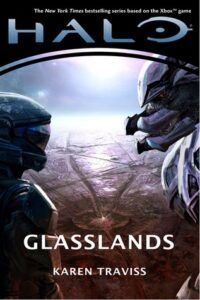
Yeah, it was probably earlier. I just basically parroted whatever the hell I was reading at the time, you know? And, you know, I didn’t really think of myself as a writer. I just thought of myself as someone who, you know, I liked typing, and so I just started getting it all down. I mean, like, I don’t even think it was, you know, anything remotely cohesive. I just, you know, did whatever jumped to mind. But then, when I was in high school, and I started taking those classes, I did start thinking of the idea of writing to be published, you know, writing to be read. And one of the things that did that was reading the adaptation of Halo, one of the video games, novelizations by Karen Travis. And I just…it was very, very little action, but it was a very human story. And I just found that I could visualize it very easily because I’d played the video games. And so, it just…I was able to pick it up very, very easily. And I had a very short attention span, so that was, you know, priceless. And so I started thinking, “Hell, I’d like to do this!” And so, yeah, I started doing it seriously. And when I did finish high school, I started pursuing it seriously.
But you didn’t actually study writing when you went on to university. You did film studies, right?
I did both. I did creative writing and film studies. I don’t actually think the creative writing was anywhere near as much help as the film studies thing was. I think the film studies really did hone in on the nature of craft and the nature of scriptwriting and the nature of pushing your characters forward, always intriguing the audience, always having something behind the next corner. A lot of the creative writing classes were, “OK, how do we allude to metaphysical imagery that this obscure 1920s writer was trying to get out, probably while he was depressed, high, and on his deathbed? How can we apply that to our own, you know, creative process, our own creative lives?” And, you know, I zoned out pretty early on in most classes. But the film study was quite educational. So, I think it’s very good to get a diverse range of inspirations.
I often ask people who have taken creative writing in university how helpful they found it for the kind of writing they ended up doing. And you just answered that. And I often get that, especially from people who write in science fiction and fantasy.
Yeah.
It’s just still not a genre that is particularly welcome at university creative-writing programs.
Absolutely not. I straight-up had one teacher tell me that any sort of science fiction, fantasy, anything like that, is just bad. And you could just hear a groan go around the audience, and some girl put her hand up and said, “Yeah, but why?” And I don’t remember the answer because I was too annoyed to pay attention.
But I do remember this one creative writing class where this one girl literally showed up to class with, not a story, she just pasted together all these newspaper clippings of various things that happened around the world and then wrote her own sub-stories about the Salem witch trials, but not really. And so, there were newspaper clippings on this big canvas sheet, like a collage. But the thing is that there was a massive bloodstain on it. And we’re all sitting there, thirty of us, looking at this bloodstain, and wondering who this, you know, ultra-Goth writer, this girl who, what she’d given us. And the teacher’s like, “Uh, what is this?” And she’s like, “Oh, yeah, I was cutting together all these newspaper clippings with a box cutter and accidently sliced my own fingers. And I started bleeding all over the pages. But I’ve decided, you know what? Instead of that, instead of just getting a new one, I’m just going to keep it.”
And I looked at the teacher, waiting for her to tear her down, and she’s like, “Oh, yeah, I can see there that there’s a bit of an arterial spray around the word ‘pain’, there’s a big, big splatter around the word ‘witch,’ there’s a big clump of hair and, you know, residue of nails and tissue right there around the words, the time, you know, and it’s like echoing back to the blood spilled by generations lost.” I almost flipped the table across. I’ve never been closer to picking up a chair and hitting someone with it in my life.
And because one of my friends at the time, she–who ended up ultimately beta reading Stormblood and is in the acknowledgments for Stormblood–she was a filmmaker, and she’d just come off making a short film that had been screened around the world. And a lot of the actors, some of the actors in the short film have gone on to do bigger things, like, one of the actresses, she’s in a movie, just finished a movie with Jason Clarke and Helen Mirren. And she’s in these, like, another TV show that’s going to be on HBO, and, you know. So, my friend basically helped discover her in short film. And so, we both of us had a background in what we were doing, a semi-professional background. So, we just looked at each other, and we were just boiling. And this other girl, of course, got top marks, for doing, like not even, she didn’t even do any writing. She just cut newspapers together and bled all over them. I think that, if nothing else, that summarizes what my experience at university was like.
Well, you’ve written a lot of short stories, and you’re not a particularly aged individual. So, when did you get started on the short stories, getting-published short stories,?
I think when I was 19, I started getting good news from short-fiction editors. The responses weren’t just, “No, we don’t want this,” The responses were, “This is interesting, but we’re going to pass.” And so, I kept sending them out and sending them out and sending them out, and eventually, one of them sold for actual money. And I was over the moon. I’m like, “OK, I’ve cracked the code. I actually can do this. There is actually a way for me to do this,” because, you know, if you look at that wall, that impenetrable wall between you and being a published writer, it looks unscalable. But now that I actually had done it, I’d actually reached out and found some measure of success, it boosted my confidence.
And so, I kept writing and kept writing and kept writing and I kept sending them out. And eventually, one of those stories, when I was 19, ended up selling to Nature magazine. So…and that was pretty amazing, for me to actually sell to a professional magazine published by Macmillan and to be able to have that, you know, see my story in print and know that it’s widely distributed all around the world. It was an incredible feeling and showed that I actually could do it. And so, yeah, I just kickstarted from there, and I kept writing short fiction over the years and getting them out, and I kept getting my stuff published. And it was, yeah, it was pretty interesting.
I still don’t think that I’m a good short-fiction writer, and I only say that because, as someone who has edited short fiction for about six years and has read thousands of thousands of stories, I think there’s a very, very, very specific sort of story that most short-fiction magazines want these days, all the sort of structure, the sort of style that they’re after. Short stories are not condensed novels. They’re not truncated novels. They’re not very, very quick stories. Short stories, I think, have a very, very specific sort of style to them, not just the way they’re written but the sort of writers that they appeal to. And that’s great, you know, the more, the merrier. But that sort of style generally isn’t for me. I say generally, because sometimes there’s a sort of freedom being able to just go wild and experiment with something, try a new POV, try a new setting, try any of that, you know, and I’m writing 180,000-word epic dark space operas, that are all from first person, voice-driven, and so sometimes it’s a relief to break away from that and just go crazy. But yeah, I don’t think I’ve quite cracked the sort of thing that most short-fiction readers and editors would like to read
I mean, if you look at something like Ted Cheung, he’s never written a novel, but he’s probably the best short-fiction writer living today. And he’s probably one of the only short-fiction writers, modern writers, who’s had his work adapted to an incredible film. That’s how good he is, not only how good his work is, but how widely it appeals, and that in itself is a skill. And I don’t think that’s something I have quite yet.
I did want to ask you about the editing for Starship Sofa. You’re both a short-fiction editor, but it’s also an audio…magazine, I guess. How has that fed into your own writing and the way that you work with words? Has it been…doing all that editing and reading those thousands of short stories, do you think that has benefited your own writing going forward? And also, how does the audio aspect of that fit in?
It absolutely has benefited me. I mean, it’s hard not to, because I’m reading all this fiction and, you know, you have to come to a conclusion. You know, there’s no, “I don’t know if I like this or not,” it’s, “Do I think this is something I want to buy and give money for? Do I want to accept this and be responsible for helping adapt it to audio and putting it on the podcast as something that I’ve edited? Do I want to work with this story?” The answer is yes or no. And in order to come to that conclusion, you have to look at a story, quote-unquote, “objectively,” and think, “OK, is it ticking the right boxes? Does it appeal to me? Do I like the genre? Do I find the style engaging? Do I want to keep reading? Do I like the ending? Do I like the approach that it’s taking?” You know, you do have to sit down and think, “Yes or no, this is something I want to read?” I mean, we’ve all read books that, we’re not quite sure we love them, but we kept reading them anyway. But doing the short fiction, I think, really helped me know, “OK, yes or no.” And one reason why I did that was, I’d read the first page, the first couple of pages, and think, “OK, do I want to continue.” And knowing, being able to say yes or no, would save me, not only so much time but so many headaches, because I’ve gotten fiction that’s made my eyes bleed, not literally bleed, but close to it, but thankfully that’s not the majority. The majority of the stuff is good, or it’s just OK. But, yeah, I would look at the fiction I was getting and make, come to a conclusion either way.
And it really helped me, I guess, nail down not only what I thought was engaging fiction, but what I liked, you know, “I like this!” And a lot of that…for a long time, I thought I was an epic-fantasy person. And now…I moved on kind of to cyberpunk, and then I started developing a taste for space opera. And so, being able to know that when I get something that was set in space or set in a future or set in an urban city, or something that, especially if it was first-person or especially if it was voice-driven, I’d always get excited, like, “Yes, this is my thing.” And knowing that helped me quantify my niche, I think. And that really helped me establish, “OK, this is the sort of thing that I’m into.” And so, when I’d be reading, I’d think, “OK, this is what I don’t do. And all this is a really good trick. This is a really good method of easing you into a universe.” And so, I did slowly accumulate knowledge in that way.
The last question, the answer to your next question, is slightly less interesting, I think. The audio version, the way it basically works, I read it, I decide if it is something that can be read aloud in audio, on top of whether if it’s a good story, I send it to a narrator, they do all the hard work of actually reading aloud the thing and editing it and cutting it together. They send it back to me, I just pop up on the show, I just pop it up to my the editor in chief, Tony, and he broadcasts it. That’s pretty much it.
How did you end up being the editor for Starship Sofa? How did you make that connection?
I think it was Neil Asher who shared a post by Tony C. Smith, the editor-in-chief at the time, and still is. The other guy had left…I don’t know why or whatever, I think just didn’t work there anymore, and so I just messaged him and said, “Hey, can I have the job?” And a short Skype interview later, I got the job. I wish everything in my life came to me as easily as that did.
You mentioned that, you know, sort of going through the different genres and seeing what you like. In your own short fiction, has it gone through various genres as well, or have you tended to write in one genre in your short fiction? Or subgenre, I should say?
Yeah, definitely. I think I started off very, very much sort of fantasy, a bit weird. Mythological sort of style, you know, like the sort of Skyrim, Game of Thrones-esque sort of low fantasy, Joe-Abercrombie-sort-of-style fantasy. And I still love Joe Abercrombie, but that’s not the sort of fiction I ever want to write. It’s just not me. And I think I did kind of develop more into cyberpunk, sort of New Age punk fiction, like China Mieville, Ian MacDonald, Paolo Bacigalupi, that sort of thing. But then I started, you know, getting more into space opera as I consumed, you know, Alastair Reynolds, Iain M. Banks, Peter Hamilton, that sort of thing. And I just felt, “OK, this is the sort of thing that I like.” And I thought, “OK, can I write this?” And of course, no one tells you what you can or cannot write. And so I thought, you know, I’m just going to take a stab at it. And I did.
But I found that short fiction was a little bit constrictive for the space opera genre, especially the sort of space opera that I wanted to write, and so I started developing it more into novels. And that’s more or less the trend. I think the transition that happened in late 2015, early 2016. I’d just come off writing an epic fantasy, a YA fantasy, that I absolutely loathed. I got about two-thirds of the way in, and I’m like, “I never want to read fantasy, write fantasy, ever again. I can’t stand it. This is not the sort of thing, that is not me,” because I go, you know, “OK, I just got rejected for a YA sci-fi novel and 50 percent of the rejections said, “YA sci-fi is a very hard sell,” like, “Science fiction is a hard sell, YA science fiction is an even harder sell.”
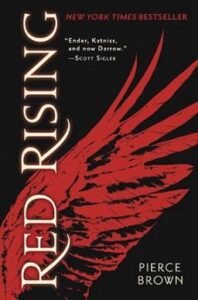
And I’d just come off reading Red Rising, and I thought, “You know, this is the sort of thing that I’d like to do.” But I was writing in a fantasy and I’m like, I felt trapped by the genre. And I thought, “You know, screw it. I’m just going to write whatever I want to write. If it sells, doesn’t sell, that’s fine.” I did look at the market a little bit and think, “OK, what’s the sort of thing that is appealing to agents?” And I’ve always loved crime, always loved murder mysteries, and I thought…I had the great, I had the barnstorming, original idea, “Hey, what if we had a murder mystery in space?” And so I wrote it, and I’m glad I did because I wrote that novel in three months, it was incredibly powerful for me to be able to just sit down every day, no matter what I had on, and just pour out a thousand words or two thousand words every single day. Just get it down. No thought of, you know, “Is this good? Is this not good?” I just thought, “I’ll come back and I’ll fix it later.” I just powered it down, punched it out, and in about three months, literally three months, I wrote a whole space-opera novel, and I must’ve done something right because a year later I got an agent with that novel. So, I’m very, very glad I did it. I did do that.
Now, it was that Stormblood or was that a novel before Stormblood?
That is a novel before Stormblood.
Because I didn’t think Stormblood was–it didn’t seem to be a mystery novel set in outer space.
No, it’s not. It was a previous one called The Rogue Galaxy. It was about, you know, the whole premise of it, basically, what if you were convicted for committing a murder you didn’t remember committing? And so that was…and you had to go to the other side of the galaxy to find that answer.
But no, I’d finished that. I’d written it in third person and about halfway through I’m like, “This would really work well in first,” because I was reading a lot of first-person fiction. And it was a little bit too late, and I thought, “OK, at the end, I’ll just go back and change it.” And when I did get to the end, I’m like, “OK, I can’t be bothered about changing it.” So I thought, “I’ll just write a novel,” I think about the end of that year, I decided to just punch out another novel. I mean, even if you do get an agent, having another project under your belt is always a good thing. Having another project, you know, in the percolator is, you know, it’s always good to keep those juices flowing.
And so I started writing in December, either November or December 2016, page one, chapter one of Stormblood. And I thought, you know, “What if we had, you know, a fiction that was very set in space, but it was also very voice-driven, it was first-person, it had an edge to it?” And that idea just appealed to me. And I wrote that first draft in six months, and I must have done something right because a year and a half later I sold it to Gollancz.
Well, this seems like a good place for you to give us a synopsis of it without giving away anything you don’t want to give away.
All right. Stormblood, yeah?
Yeah.
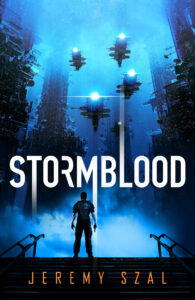
All right. OK, Stormblood. The basic premise is that the DNA of an extinct alien race is used as a drug, and it makes people addicted to adrenaline and aggression. And so, of course, this one empire injected it into those soldiers and got them to fight off a brutal invading empire. And, you know, all seemed well and good. You know, these soldiers are literally addicted to killing, they’re literally addicted to running headfirst into a bullet-storm. What could possibly go wrong?
Well, everything, because it’s permanent and the high didn’t stop when the enemy was over, and the high didn’t stop when the battle came to a close. And they also had these, all these soldiers restless and not knowing what to do with their own bodies. And it didn’t stop when the war was over, and they got sent home, and they had these tens of thousands of soldiers permanently addicted to being on a battlefield. And so, the main premise of this is that the main character is one of these soldiers, comes back from a war, you know, traumatized, ridden with PTSD, but looking for a way to get his life back together. Anyway, the main forces that injected the DNA into him, the Galactic Empire, whatever you’d like to call it, they call him back and say, “We need you to do something for us.” And he wants nothing to do with them, for obvious reasons, because they ruined his life. They lied to him. They’ve lied to millions of people, the cost of winning a war, but at great consequence. And he says, “Why should I talk to you?” And it turns out that his fellow soldiers, the ones that he knows and loves, are all being murdered, being killed off, being overdosed. And it turns out that his brother is the prime suspect. His estranged brother is the prime suspect.
And so, as the book unfolds, you find out his history, you find out his history with his brother, you found his history with his teammates, and their whole central conflict is that he was very, very close to his brother, they developed a very strong brotherhood, you know, when they were surviving together on a brutal backwater planet, when they were surviving an abusive father. And he transferred that same sense of brotherhood and camaraderie to fighting in a war where the only people who knew what it was like to have an alien organism actually, like, squirming around in your head and sniffing up your chest and sniffing up your backbone was to be with, and, you know, what it felt like to be in cover and see the enemy charging towards you and like, get excited, “Yes! There are people shooting at me,” to actually get an adrenaline spike. The only people who knew what that was like were his fellow soldiers. What it was like to want to be suicidal. And so, he developed a very, very strong personal relationship with them.
And he comes home, as I said, and finds out they’re being murdered, potentially by…his brothers are being murdered by his flesh-and-blood brother. And so, the whole central conflict is him keeping the balance between that, being able to hunt down his brothers’ killers while dealing with the fact that his own brother is murdering them. And, of course, because this wouldn’t be a good story without a central personal conflict, the more he investigates danger, the more addicted to adrenaline and aggression he gets. Because he’s been out of the war for a few years, so he’s able to control his body’s, able to control his urges, but, of course, when he’s going up against killers and a shadowy organization, that doesn’t quite work out. And so, the more confrontations he gets into, the more hyped up and the more dangerous he gets and the more dangerous his body gets. And so, there’s that balancing act of keep of trying to get this all done while still not going insane, basically.
Well, it’s a bit of a cliche question, but, you know, it’s still a legitimate one, where do you get your ideas? So what was the seed for this? Where did this the seed for this novel come from that then sprouted to do this trilogy?
Oh, it was just my original genius, just sitting in a dark room and just thinking at all. No, not at all. I borrow very, very heavily from cinema and gaming because I’m a very visual person. And so, the idea of a far-future society has always intrigued me, both in the ideas level and a visual level, to be able to go to some central city on a spaceship, you know, galactic skyscrapers, you know, kind of like Coruscant from Star Wars, and to go down in all these neon dark cities, on all these busy streets that are frantic with these different alien species and different spaceships. You know, that idea has always very, very much appealed to me. And so, I knew that I pretty much wanted to set my story in that sort of universe.
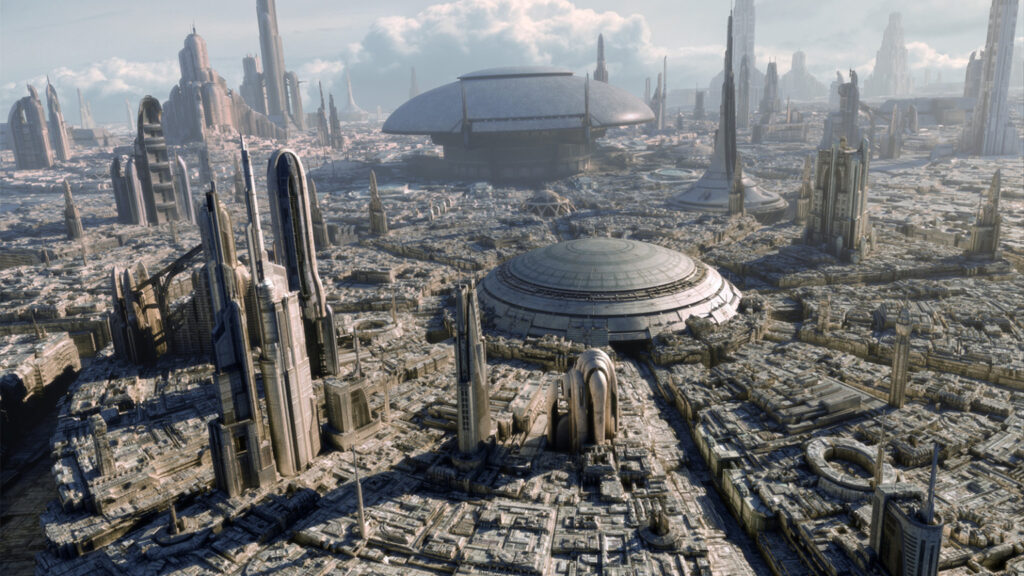
And one thing I found is that there was very little of a Star Wars-esque sort of fiction being written that is not tie-in. There’s a lot of, you get a lot of alien stories that are either first-contact stories or the stories that are basically war-driven stories, that these humans are fighting a war against these aliens, but there’s not quite as many stories about a future society where humans and aliens have, you know, have joined forces or, you know, there’s this multi-species society, like, sort of Mass Effect. And that’s my bread and butter of fiction, and there wasn’t quite as much a lot as I would have liked.
But, so, I wanted to write that, but then I thought, “OK, what about, you know, let’s make it a little bit weirder. You know, what if the idea of, you know, this, how will we people upgrade ourselves and what sort of modifications would we make?” And then I thought, “You know, what if the modifications we made were from the DNA of aliens, how would that work, and how would we grant ourselves with alien, you know, biometrics or whatever?” But then I thought, “Let’s make it a little bit more interesting. What’s the cost of that? Surely there has to be a cost.” And the cost was that it’s a drug and it makes you addicted to getting an adrenaline spike. It makes you addicted to your own body chemistry. And so, then I started developing the idea of a brother, of two brothers who had a very good relationship but then were estranged, and then started developing that relationship slowly as I wrote the book. But yeah, I am definitely a character-driven author. I am not a plot sort of guy. So, I definitely did combine the idea of this alien DNA with the idea of these two brothers and just mashed them together and just sort of went on from there.
Well, what did your planning process look like? You talked about developing the characters, as you wrote. Did you do a lot of outlining ahead of time or just…what did that look like for you?
That’s a pretty good question. I’m most fascinated by this question, as well, because it’s very hard to tell when you see a finished product, knowing what went into it.
And I get a lot of different answers.
Yeah, yeah. In my case, I outlined the broad strokes of it. I knew that I wanted to have this to happen and I wanted the antagonist to be doing this, and I wanted this sort of resolution midway, and I wanted to have this sort of scene, and I wanted to have this sort of arc, but more or less how I got slithered in between that, I pretty much just wrote on the go. But as I did that, I more or less figured out, “OK, this is not what I want to do.” And one of those things was one of the side characters. I’m like, “OK, I haven’t quite gotten his voice down. I haven’t quite gotten his approach, his personality,” and in order for me to write a character, I have to know the sort of person they are because who they are influences the behavior, the relationship, the dialogue. And I can’t just…you know, if I don’t get a concrete answer, it’s going to be wet clay. And so I went back a little bit and did a bit of character tweaking, but more or less, I just went, you know, started going from point to point and just weaseling my way through those points, deciding, “OK, this has happened, OK, how are they going to get to the next point?” And I just rocked up one day and decided, “You know, OK, they will do this, they’ll go here, they’ll do that.” But the broad strokes of the narrative, the big anchor points, were definitely outlined. And I think that comes from film, of all things, because I’ve said, I’m very inspired by film. And one of my favorite sort of films are films where I feel like the director has a very tight control over the narrative, over every shot, over every scene, of the emotion that you’re expected to get from every point in the film.
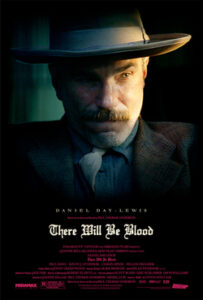
Like, I’m a very, very big fan of something like a film, like, for example, the film There Will Be Blood with Daniel Day-Lewis. You know, that film is so incredibly tight. You just know that every, behind the camera, he was in absolute control. Like, a director like Martin Scorsese or Christopher Nolan or Denis Villeneuve, you get like something like Blade Runner 2049. Like, this is what they want to do, and this is how we achieve this…they achieved exactly that. And so that sort of thing that I enjoy doing, being able to control my narrative.
Unfortunately, the human brain sometimes has other ideas. And as I’ve discovered with writing book two, and outlining book three, sometimes that doesn’t always go to plan. And so, sometimes being able to adapt and figure out, “OK, this is actually what I want to do.” I mean, you get to a certain point in the narrative, and you’re like, “Actually, my characters don’t want to do this. Well, I don’t want to do this.” Or, “I could think of something better.” And you have to adapt. You have to be able to go along with it. And I refuse to write anything that I don’t want to write because I feel like, “OK, the narrative needs it” or “this is what I planned.” I can’t do that. I need to be able to write something that I feel is what I want to write.
What does your actual writing process look like? Are you a fast writer, are you a slow writer? Do you use parchment under a tree in the backyard, or do you go to a coffee shop? How does it work for you?
No, I siphon the lifeblood of other authors’ dreams, and I distill that into pen and paper.
I should try that.
Well, I’m pretty sure that girl from university, I’m pretty sure she was doing that. No, what I do do is, I am a fast writer. I can do three thousand, four thousand, five thousand words a day. When I was writing Stormblood, that’s the sort of mileage that I was pounding out. I was doing approximately four thousand words a day. Sometimes only a few thousand of those words were good. Sometimes I would write a thousand words and all of them were good. I wish those days happened more frequently than they do.
But no, I do typically go to cafes because I have a studio apartment and I have a lot of things, all my books, all my games here, and a multitude of distractions, either from my dog or my family or anything else that comes along, take me away from my little world. And so, being able to go to a cafe…you know, for some reason being around screaming children and coffee and, you know, waiters and whatever, for that reason, somehow helps me to cope. You know, if I eat, it doesn’t matter what it is. If I’m away from home, I can write more easily than I can when I’m at home. And so, being able to go down to a beachside cafe near where I live and pound out three thousand, four thousand words, I go to the pub, pout out a few words there in the afternoon, it really does help me distill what I need to do. Editing is a little bit more tricky because I’m, as I said, I try to be in control of my craft, and so, being able to be at home and on my big monitor, I think, helps me more specifically. But being able to get out the raw words, nothing gets it out like I do when I’m going out to a cafe or going somewhere public. It really just helps me get those words down. And sometimes that’s just what you need to do, is to make a fiction work.
Yeah, I ask a lot of authors that, obviously, and I personally like to write outside somewhere when I can, hasn’t been a lot of that recently, but one of the things that I have found, and other authors have mentioned this to me, is that they’re fine with the wash of sound from a busy place but if you get a sort of a quieter place, but there’s somebody sitting close to you having a conversation with somebody else, those words can really interfere when they’re writing. At least, I find that. Are you able to just tune all that out in the background no matter what’s going on?
No, I definitely agree. Like, unless everything is so cluttered that it turns into a white noise, no, I can’t. If someone is having a conversation right next to me, it does filter in. I do have a very nice pair of noise-canceling headphones that I make very, very good use of.
That’s when I listen to music. Instrumental music, though, because words in the music are the same problem.
Yeah, exactly. Exactly the same. So I’ve just got this massive playlist of, you know, soundtracks, Hans Zimmer and John Johnson and Brian Eno and all these other great artists and great music soundtracks that really help me distill the sort of thing that I’m trying to write. It’s very, very useful.
You mentioned editing, so what does your revision process look like? Do you write straight through and then edit from start to finish? Do you do a rolling revision as you go? How do you work?
That’s an interesting question because working with an editor is far different than it is working, editing, self-editing your own project. And my editor is Gillian Redfearn at Gollancz. She edits Joe Abercrombie, Richard Morgan, Alastair Rennolds, Joe Hill, a bunch of other fantastic writers. So she very, very much knows her craft. So, the way that we did Stormblood one was that we edited the first half of the book once. Because we did structural changes. And so, she edited the first half of it, I went back, did my editing, made those changes. She looked at it, saw the sort of changes that I had made, and then edited the second half of the book to apply the ripple effects from the first half. So basically, the things that changed in the first half she then helped edit with those changes in mind for the second half.
And so, she basically edited the first half of the book twice, basically. And so, I’ve actually had to keep that in mind when I am writing, doing my editing, I’m thinking, OK, I kind of look at it as a concentric circle. “OK, what’re the big structural things that I’ve got to change? Is it character? Is it worldbuilding? Is it, you know, the big plot revelations.? What are the big things I’m changing?” You know, I’m not preoccupied with small things like one scene or, you know, chopping down an action scene, or at least I shouldn’t be. I’m trying to think of the big things. “OK, do I actually need an action scene here?” Because you can edit your life, your heart out of a scene, and this is actually applicable for something that I just did in book two. I had all these different plot points going on in those one scene that was taking up a lot of time, and it wasn’t getting too much. And so I’d wilt it down and wilt it down and wilt it down and chop it back, chop it back and chop it back, and it came to the point where I realized, “OK, this is getting me absolutely nothing. I’ve got three action scenes in one hundred or so pages. Why don’t I just chop two of those out and just make one big action scene, and that way I can stack on the tension instead of being a stop-start, stop-start sort of approach.” And being able to do that, being able to look at the whole thing in my head and being able to see, “OK, this is what I need, this is what I don’t need,” helps a lot as opposed to going in and picking up minute details, because I’ll do that forever. Honestly, my editors need to pry the final book away from my cold hands because I’m just, “Wait, no, no, no, there’s one word, I’m not sure to call it a spacecraft or ship. I’m not sure to call it a warp drive or hyperspace. Just let me change it, one thing.”
And so being able to look at the big picture really does help. I mean, to be able to say, “OK, I’m not going to be too preoccupied in this line of dialogue from this character. I’m going to be preoccupied with, is this what I want the background to be? Is this what I want their approach to these, is what I want their arc to be. And that really helps, being able to look at the big picture and hold the big thing in my head. It’s a great help. And being able to do that helps me, you know, really self-interrogate, I guess, the sort of book that I’m trying to write. And even if it’s a waste of time, even if you’re like,”OK, I’ve spent a whole day looking at this character. Yes. I’m happy with the way…I don’t want to change it.” That reaffirms in your mind. “Yes, I’ve made the right decision. This is what I want. And that can be a really good thing.”
You mentioned in your acknowledgments quite a few beta readers. Where do they come into the process?
They came in by telling me, not what I wanted to hear, but what I needed to hear. And yeah, they…one of the best comments I got was from a writer called Gemma Anderson, or she writes under G.V. Anderson, and she said to me, and she’s a writer on her own, she’s won a World Fantasy Award, she’s brilliant. And she said to me, “Your characters, these two main characters, they always clash professionally. They never clash personally. What they argue about is always about the job. It’s never about each other or about each other’s attitudes.” And so, that really helped me separate that when I’m writing characters. OK, are these people just arguing because of a small office problem, or are they arguing because of a big character flaw? And that really helped me shift, I guess, from plot to character, and I always try to get my books as character-driven as I can, And so that really, really helped. And so basically they all did help, you know, help me, you know, understand, come to an understanding of what works, what doesn’t work. And beta readers are always going to disagree. They’re always going to give you conflicting information, which is absolutely fine. But being able to hear from a bunch of people, “OK, this is the sort of thing I like. This is the sort of thing that I think works well,” I think that is more helpful than simply, “OK, well, I didn’t like this, or this isn’t working.” Being able to see, “OK, what’s ticking people’s boxes,” I think that’s a really good way to find out what’s working in your book.
How did you find your beta readers?
Well, I knew a few of them, from Starship Sofa partially, from a few other things, but I did, I emailed a few of them or told a few people, “Hey, I would like to do a beta reader swap,” and I read some of their books and they read mine and, yeah, they just, that’s basically how it happened. There’s no lottery, alas, there were not people clamoring to read my scribblings, it was just me reaching out to some people that I knew and asking them, “Hey, want to read my book?” And not all of them ran away screaming for the hills. So they’re the ones that didn’t run away screaming for the hills.
So the book came out in June. It’s your first novel. What was the experience like for you to get that first book and see it in print?
Oh, exhilarating. I mean, it was probably the worst time in the world to be having a debut novel.
Not great.
Yeah, well, you know, COVID, but case in point, the hardback got canceled for my book, but the reason it got cancelled is because Goldsborough Books, a very, very nice independent seller in London who collects first-edition, signed hardbacks and gives them sprayed edges, so they’ve got everything, they’ve got a signed edition of Catch-22, they’ve got all the signed editions of all the James Bonds, every major author pretty much gets, you know, a hardcover signed with them. Like, you know, I think I’ve got a very nice hardcover from Joe Abercrombie, and some of them are still going up for, like, five thousand, ten thousand pounds, for a first edition. Anyway, so, I got 250 copies from them, they decided to take 250 hardbacks, and I got a very nice, gold-sprayed edges. And so, they sold out within a week, 250 copies sold out in hardback, the week before the book had even come out officially, and according to my agent, that’s incredibly rare to happen for science fiction, although that happens all the time for fantasy, but less so for science fiction, apparently. But that was quite a shock to realize, “OK, wow, there is actually an audience,” because it’s impossible to gauge how many people actually know about your book, how many people actually know what people are interested in. And so, that was quite a bit of a shock
But nothing, I think, compares to being able to get that package and being able to open it up and see, you know, your name on the cover and all your words written in these pages. It was exhilarating. But being able to go out and see, go to the bookstore and actually see it in the wild, see it ready for purchase and see people walking past it, that is another thing entirely and being able to see who your neighbors are as well as quite interesting. My actual neighbors, I have pretty good neighbors in my name. I’ve got John Scalzi, Neal Stephenson, Tade Thompson, and Adrian Tchaikovsky and some little known hack called Tolkien. I imagine he’ll be quite big someday. That is more or less my neighbors, depending on what’s in the bookstore. But, yes, that’s quite fun.
As somebody with a last name of W, I tend to be on the very bottom shelf, which is always annoying, but I’m down there with Ted Williams. So that can’t hurt.
No, no, no, definitely not. But yeah, it is quite fun to be able to go there and say, “OK, it’s actually a real thing now,” because the way the industry works is you don’t actually know if anything is going to go pear-shaped at any time, but being able to see, it’s in the wild, it’s a real thing, it’s in people’s homes, people can buy it and read it. It feels real, feels done, like, this is a book that’s part of science fiction canon. And we’re all readers, and so to be able to know that you’ve contributed to that canon, you’ve actually contributed to literature, is quite amazing.
Well, that kind of segues nicely into my other reverb question, the big philosophical questions, which is really, why? Why? Why do you do this? And also, you know, this podcast is called The Worldshapers, and I often say that, you know, it’s a lot asking any fiction to actually shape the world, I think very little fiction has had a huge impact on the world as a whole. But you’re shaping readers in some fashion with your fiction. So, why do you write, and what do you hope your writing, what impact your writing will have on readers?
I write so the lambs stop screaming. No, no, no. I write because I enjoy it. I do actually enjoy the process of getting those words down. I enjoy being able to create something that didn’t exist and being able to transplant that idea of, something that prior to me sitting down and putting words to it, didn’t exist. It wasn’t a thing. And being able to have it be concrete and being able to put that in other people’s heads, is something that I quite enjoy, and being able to impact people is even better. But to answer your question, I’m getting a lot of people, quite a lot of people saying to me how much, how touched they were by the portrayal of brotherhood in my book, and how much they, you know, really felt for the main character and his feelings and how heartbreaking that relationship, that deteriorating relationship was with his brother and how heartwarming it was to see him gaining that relationship with his fellow soldiers and his friends and being able to see it slowly built up.
And that’s something that’s quite special to me, because in a lot of fiction, especially between men, I think there’s a lot of…it’s very rarely platonic, it always seems to be sexualized, and a lot of fiction as well, even between men and women, automatically, it seems to be sexualized or automatically seems to be building up to a romance. And my point–and that’s great, you know, and there’s definitely romance in my book, but I do come from a perspective of friendship, of brotherhood, of, you know, really doing what you can for your friends, no matter how much it hurts, and being able to see that it worked, that I actually…that’s something that appeals to me very much, of being able to see that my stab at it, that my attempt of portraying brotherhood and showing the heartbreakingess of it and showing the highs and lows and the benefits and being slowly built up and what it means to people and how, you know, guilt influences people and how people try to get redemption and go out of the way for forgiveness, just so the people that matters to them, that they can build that relationship back. You know, that’s a very messy and sticky, you know, sort of topic, and being able to see so many people have reached out to me saying how much this meant to them, is…it’s great. I mean, that’s all I could want. I mean, I could have people tell me the worldbuilding is good, the plot is interesting, I didn’t see this coming, but really, at the end of the day, if I can, if some people say to me, “These two characters, the emotions that they were feeling, I felt them, and it touched me.” You know, that’s all I can want.
And we are getting close to the end here, so what are you working on now? Obviously, book two and book three in the trilogy.
Yeah, book two and book three. Book two is done in the sense that the words are on the page. Not all of them are in the right order yet, but I am working on that. And I’ve just been talking about it with my editor. I’ve been slowly outlining what I’m going to do in book three, which is a little bit scary. I mean, when I first got the deal, way back in, like, 2018, when we could still go outside, I never, it didn’t cross my mind that I’d be writing a trilogy, because I try to just write my books as a singular product. So, now that I actually I’m sitting down thinking, “OK, I’m going to do that in book three, I’m going to have that plot thing happen in book three,” it’s quite a different feeling, I think. And so, that’s what I’m kind of doing now, really sitting down and distilling that, you know. But it is a slow process, it is happening slowly, but it’s keeping me out of trouble. So, that’s always good.
And have you thought beyond this trilogy to what might come next?
No. No, I’m not allowing myself to do that, I’m just working on this now, I mean, I have ideas, of course, I’ve got plenty of ideas. Not all of them are worth, most of them aren’t worth the page they printed on, and since mine are in the computer that’s absolutely none at all. But I am, of course, you know, always having things churning on back in the mental percolator, but not at the moment. I’m just really focusing on making these the best books that I can. I mean, even if I never get to write another trilogy, I just want to make sure that these count. So this is where all my attention is going.
And where can people find you online?
They can find me on JeremySzal.com, or on Twitter @JeremySzal, or on Facebook, or on GoodReads, all the usual places.
And Szal is S, Zed, A, L. Do you say zed in Australia like we do in Canada?
We say zed, yeah, not zee, not like Americans, you know, we are from English descent.
S, Zed, A, L. Well, thanks so much for being on The Worldshapers. I had a great time talking to you. I hope you enjoyed it.
All right, thank you very much, and thank you very much for checking out Stormblood as well. I really do appreciate it.
Well, I’m looking forward to finishing it. I found the writing really driving me forward and very rich and very descriptive and great characterization and all the stuff I like. And I’m a big fan of space opera. In fact, one of my proposals to DAW right now is for a space opera. So, yeah, so I’m looking forward to finishing it and then carrying on and reading the rest of the trilogy as it comes up.
All right. Thank you very much.
Bye for now.
Bye for now. Thank you.

